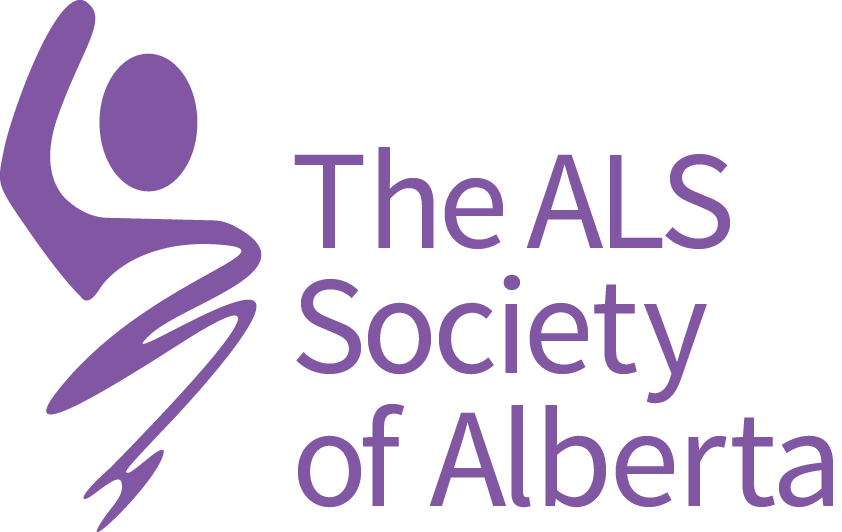Who can get ALS?
ALS can strike anyone. ALS is not contagious, does not discriminate, and can occur at any age. ALS most often occurs between the ages of 40 and 70 but can also occur in older and younger adults, and rarely in teenagers. ALS is often fatal within two to five years of diagnosis. There is a hereditary pattern in about five to 10 percent of cases.
What may cause ALS?
Although ALS has been identified for more than 135 years, in the majority of cases, the cause is unknown. Research is being conducted in areas relating to biomarkers, genetic predispositions, viral or infectious agents, environmental toxins, stem cell research, and immunological changes. Some of this research is happening right here in Alberta.
What are the effects of ALS?
Progressive paralysis of the voluntary muscles involved leads to loss of mobility, a decline in breathing function, difficulty eating and drinking by mouth, as well as speech problems such as slurring and low volume output. Not every person with ALS will experience all symptoms or have all areas of the body affected during their course of illness. ALS is usually, but not always, fatal within two to five years after diagnosis; however, there are several options available to help manage the disease and preserve the quality of life. Some cognitive abilities may also be affected (30-50 percent of cases), but ALS does not usually involve loss of sensory function – taste, touch, sight, smell, and hearing.
What are the early symptoms?
The symptoms and the area of the body first affected can vary from person to person. Typically, ALS involves muscle weakness, fatigue, wasting, stiffness, loss of tone, cramping, twitching, and hyper- and hypo-reflection. The onset of the disease may occur in nerves associated with muscles of the upper or lower limbs, the throat, or the upper chest area. In rare cases, the muscles involved in breathing are first affected. These symptoms can result in decreased coordination in the hands, tripping and falling, weight loss, and difficulty swallowing, speaking, or breathing.
Is there a cure?
Simply, no, there is no known cure and no treatment that prolongs life significantly. Some drugs that are now available and others being developed will offer new treatment options. Research is investigating ways to slow, manage and eventually reverse the disease. The ALS Societies across Canada are working tirelessly to isolate a cause and eventually a cure for ALS.

